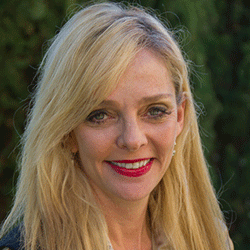Addiction As a Spiritual Awakening
TL;DR:
Audrey Hope presents a revolutionary spiritual perspective on addiction, viewing the crisis of being “on your knees” as a gateway to spiritual ascension rather than just rock bottom. Her healing system removes shame and guilt from addiction, reframing it as an opportunity for enlightenment and complete identity transformation rather than just recovery.
About Audrey Hope:
Audrey Hope has created an entirely new healing paradigm that transforms how we understand addiction and trauma at the deepest soul level. Rather than working within existing therapeutic modalities, she has developed what she calls a “new system” that integrates spiritual principles with practical healing applications. Her approach recognizes addiction not as a disease to manage, but as a potential catalyst for profound spiritual awakening and personal evolution.
Central to Audrey’s revolutionary work is her commitment to removing the shame and guilt that traditionally accompany addiction treatment. She understands that these emotions often become additional barriers to healing, keeping people trapped in cycles of self-blame and low self-worth. Instead, her system offers addicts and trauma survivors a completely new identity – one based on spiritual potential rather than past mistakes. Her goal extends far beyond sobriety or symptom relief; she guides clients toward enlightenment and complete life transformation. When people approach their healing journey with this level of dignity and hope, Audrey has witnessed remarkable rates of change that exceed traditional treatment expectations.
Video Transcript:
I really developed a new paradigm in healing from the deep level of soul, and it works with addiction and trauma because it gets at the root of the root. But I want a new perspective on addiction. I really believe, from a spiritual level, on your knees you begin to look up. It’s like a gateway, it’s an opportunity and invitation to ascend. And I don’t want addicts or people with trauma to be ashamed or guilty, and that is so healing for an addict or a person with trauma – is to take away that, because so many addicts have so much shame and guilt. So all of these new concepts that are in spirituality, I related – I put it into the healing. So it’s not really a modality, it’s a new system to be able to take spirituality, and the goal is enlightenment, the goal is a new identity, and the goal is to burn the past and leave the luggage behind and to use the addiction as an opportunity to really change and really transform. And when someone comes in and has that dignity and has that hope, wow, it’s just unbelievable how fast they can change.
Key Insights:
This video reveals Audrey’s most profound contribution to addiction treatment: reframing the lowest point as the highest opportunity. The phrase “on your knees you begin to look up” transforms rock bottom from a place of despair into a launching pad for spiritual ascension. This perspective shift alone can dramatically alter someone’s relationship to their addiction experience.
The elimination of shame and guilt represents a radical departure from traditional treatment approaches that often inadvertently reinforce these destructive emotions. Audrey recognizes that shame becomes a prison that prevents healing, while dignity and hope become rocket fuel for transformation.
Her concept of “burning the past and leaving the luggage behind” speaks to complete identity reconstruction rather than just behavior modification. The goal isn’t to become a “recovering addict” but to emerge as an entirely new person who has used their darkest experience as raw material for enlightenment.
Reflection Questions:
- How might viewing your lowest moments as gateways to ascension change your relationship to past struggles?
- What would it feel like to completely “burn the past and leave the luggage behind” rather than carrying it as part of your identity?
- How could embracing dignity and hope accelerate your own transformation process?
Related Topics:
This video addresses spiritual approaches to addiction recovery, shame elimination in healing, identity transformation versus behavior modification, using crisis as catalyst for growth, and the concept of enlightenment through adversity.

- Featured Staff: Audrey Hope, RASi
- Recorded: November 14, 2024